CRYSTAL CLEAR
These building blocks are expected to pave the way for new treatments to address the needs of patients who currently have few or no treatments available.
At Servier, we have chosen to focus on a number of therapeutically promising technological platforms in order to fully tap their potential: small molecules, monoclonal antibodies, and antisense oligonucleotides (ASOs). These building blocks are expected to pave the way for new treatments to address the needs of patients who currently have few or no treatments available.
Small molecules: Enhanced efficacy for intracellular targets
Small molecules, as the name suggests, are small synthetic chemical compounds containing between 20 and 100 atoms.
Known for their stability, such molecules are also relatively “easy” to design.
Their small size is a clear advantage, as it affords them a considerable degree of cell penetration. As a result, therapeutic solutions using small molecules are particularly effective in target areas where “large molecules” cannot gain access.
In general, this type of medicine is formulated into tablets to be taken daily.
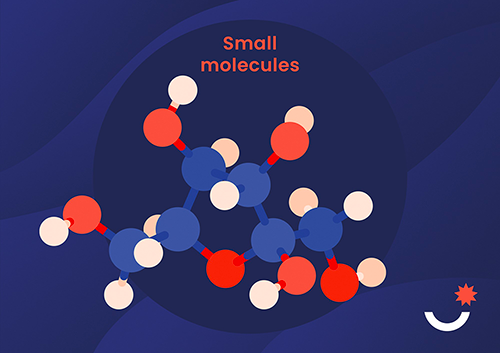
Antibodies in all shapes and sizes: A leading-edge therapeutic arsenal for targeted approaches
We at Servier truly believe that antibodies have promising applications in the treatment of rare cancers and neurological diseases.
Monoclonal antibodies come in several forms, including monospecific antibodies, bispecific antibodies, and antibody-drug conjugates (ADCs). They are complex compounds derived from living cells. Due to their high degree of selectivity, they have the ability to directly target pathogenic elements.
In contrast to small molecules, they have a much higher molecular weight and are generally administered as injections on a weekly or monthly basis.
Monoclonal (monospecific) Antibodies
Essential in treating certain cancers, autoimmune disorders, and infectious diseases, monoclonal antibodies are able to bind with the target antigen in a very particular way. This action neutralizes the pathogenic agent, thus activating the body’s immune response.
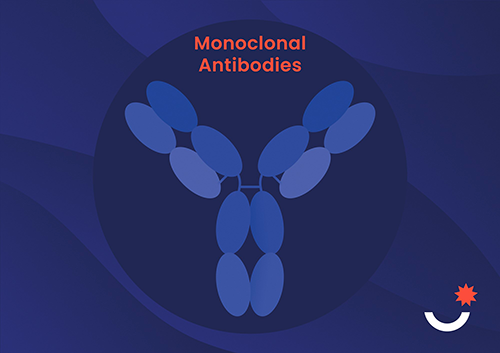
Bispecific Antibodies
Bispecific antibodies (bsAbs) are engineered so that each of their two “arms” can bind to a separate, distinct antigen simultaneously. This property has several advantages. Unlike monospecific antibodies, which target only one antigen, these molecules can interact concurrently with two antigens on the cells to be eradicated. By targeting two antigens or epitopes, these therapies can induce multiple synergistic physiological or anti-tumor responses. At Servier, we mainly use this technology in the development of oncology treatments.
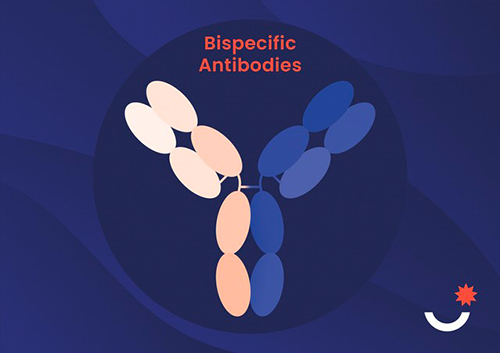
Antibody-drug Conjugates (ADCs)
Antibody-drug conjugates (ADCs) are composed of a monoclonal antibody (mAb) tethered to an active drug substance through a binding agent called a “linker”.
The antibody binds to the surface of the targeted cells, allowing the conjugate to penetrate the cell and release the active substance directly inside.
Although the majority of approved ADCs and those in development target various types of cancer, the potential of these complex therapies to treat other diseases is tremendous.
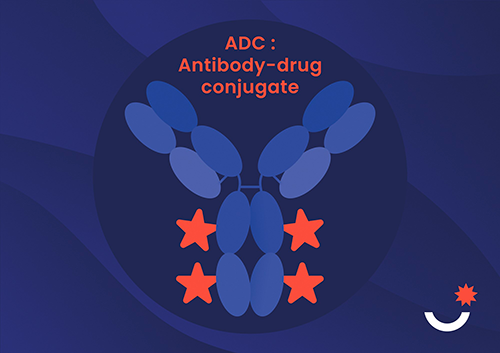
Antisense oligonucleotides: Promising innovative treatments for rare genetic diseases
Antisense oligonucleotides (ASOs) are an innovative technology for use in the treatment of genetic diseases. They intervene on messenger ribonucleic acid (mRNA), which carry temporary DNA copies.
Made up of small pieces of nucleic acids, ASOs, by linking to the faulty RNA, can block its harmful effects of and thus the synthesis of defective proteins.
The advantage of this technology is that there is no direct action on DNA, yet a targeted approach is maintained. This innovation could improve the treatment of rare and neurodegenerative diseases and certain cancers.
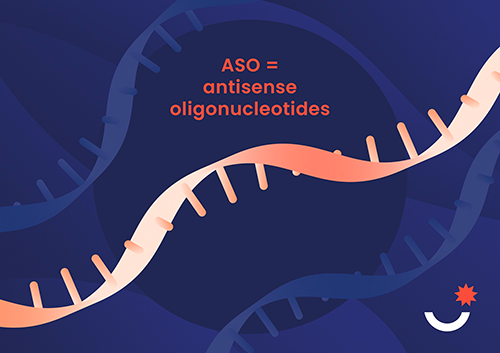
At Servier, we strongly believe that these technologies are the keystone for developing next-generation therapeutic solutions.
Through our focus on these cutting-edge technologies, Servier researchers can unlock their full potential to address the needs of patients, particularly those with rare cancers and neurological diseases.
